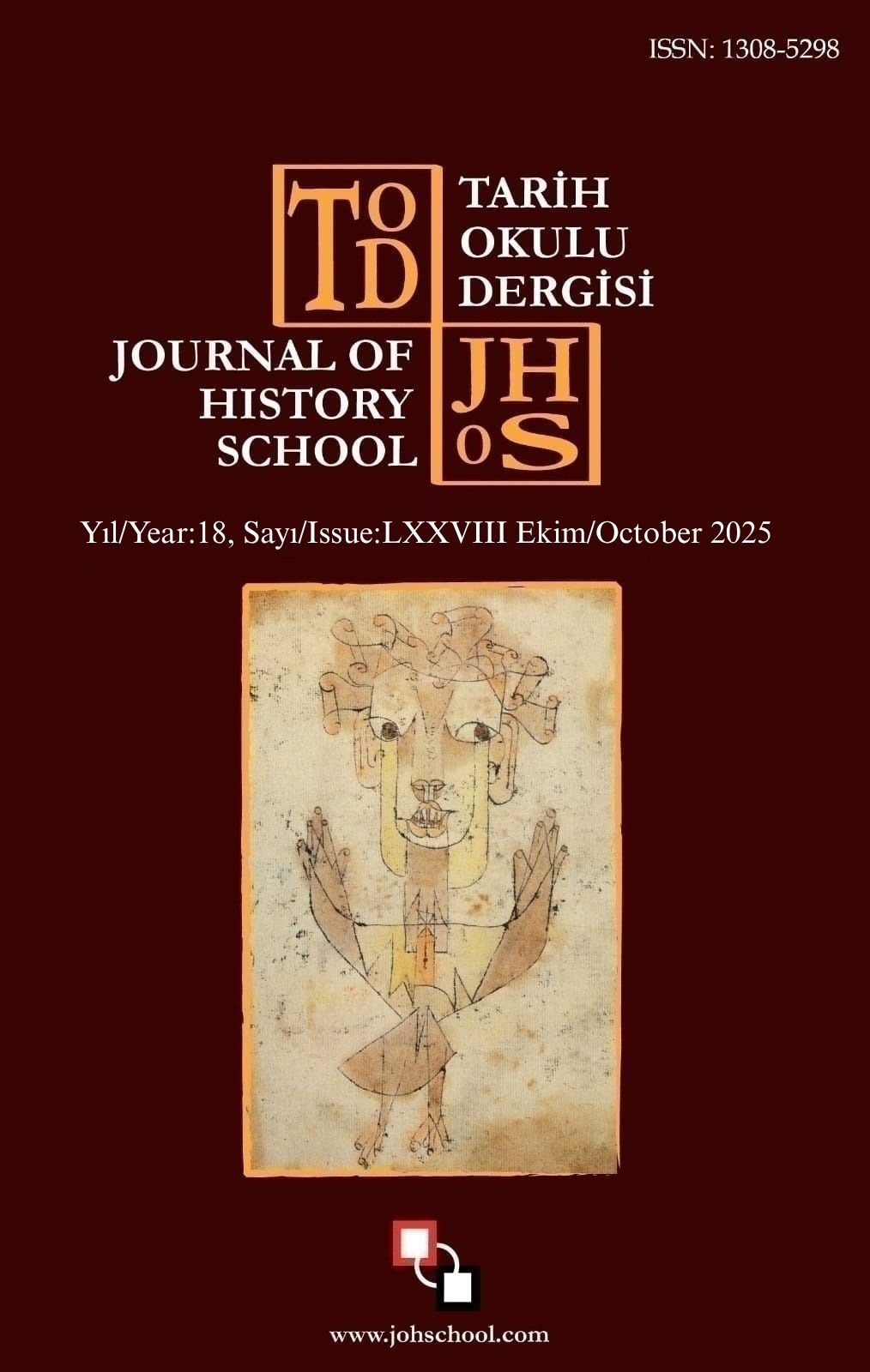Author :
Abstract
Fatih Sultan Mehmet tarafından inşa ettirilen Kapalı Çarşı, Osmanlı İmparatorluğu’nun ekonomik ve sosyal yaşamının önemli bir parçasıdır. Ticari hayatın nabzının tutulduğu bir mekân olmasının yanında, payitahtın merkezinde her tabakadan insanın bir arada bulunduğu, birbirinden farklı dil ve yerel ağızların etkileşim içinde olduğu, kaynaştığı, kolektif eylemlerin gerçekleştiği bir mekândır. Bu özelliği sayesinde Kapalı Çarşı’nın Osmanlı’nın hiyerarşik yapısını ve çok kültürlü sosyal dokusunu yansıtmasına olanak sağlamıştır. Tarihin her döneminde Osmanlı “millet” sisteminin ferahlatıcı ortamı Kapalı Çarşı’da ticari ve kültürel bir motivasyon iklimi yaratmıştır. Burada hâkim olan örüntü, Osmanlı’nın kurumsal yönüyle ilişkilendirilen çeşitli meslek grubundan farklı inanış ve değerlere sahip bir esnaf birliğinin oluşmasıdır. Bu çalışma ile New York’ta yayınlanan The Herald Gazetesi’nin 11 Mayıs 1838 tarihli haberinde yer verilen İstanbul Kapalı Çarşısı’nda sabun dükkânı işleten İbrahim’in mektubunun değerlendirilmesi amaçlanmaktadır. Eğitimi hakkında bilgi vermeyen İbrahim, Pera Palas’da ikamet eden papaz arkadaşı Antoine’den öğrendiği İngilizcesi ile bir mektup kaleme almıştır. İbrahim mektubunda; ailesi, bilhassa babası, esnaf komşuları hakkında bilgiler vermiştir. Çarşı esnafı içerisinde babasının özel bir konumda olduğunu muhtelif satırlarda dile getirmiş ve yaşadığı tarihlerde ziyaretine gelen Osmanlı elitinden bahsetmiştir. Mektubunun ilerleyen satırlarında Osmanlı kadısının Kapalı Çarşı esnafına karşı tutumunu şahit olduğu bir örnekle açıklamıştır. Değerlendireceğimiz bu mektup sıradan bir esnafın gözüyle devrin siyasi, sosyal ve ekonomik atmosferini yansıtması açısından bazı ipuçları vermektedir.
Keywords
Abstract
The Grand Bazaar, built by Fatih Sultan Mehmet, is an important part of the economic and social life of the Ottoman Empire. In addition to being a place where the pulse of commercial life is kept, it is a place where people from all strata coexist in the center of the payitah, where different languages and local dialects interact, fuse and collective actions take place. This feature enabled the Grand Bazaar to reflect the hierarchical structure and multicultural social fabric of the Ottoman Empire. In every period of history, the refreshing environment of the Ottoman “millet” system has created a climate of commercial and cultural motivation in the Grand Bazaar. The dominant pattern here is the formation of an association of artisans with different beliefs and values from various professional groups associated with the institutional aspect of the Ottoman Empire. This study aims to evaluate the letter of İbrahim, who ran a soap shop in the Grand Bazaar of Istanbul, which was reported in the news of The Herald Newspaper published in New York on May 11, 1838. İbrahim, who did not provide information about his education, wrote a letter in English, which he learned from his priest friend Antoine, who resided in Pera Palas. In his letter, İbrahim provided information about his family, especially his father, and his tradesman neighbors. He expressed in various lines that his father had a special position among the tradesmen of the bazaar and mentioned the Ottoman elite who visited him during his time. In the following lines of his letter, he explained the attitude of the Ottoman judge towards the tradesmen of the Grand Bazaar with an example he witnessed. This letter, which we will evaluate, provides some clues in terms of reflecting the political, social and economic atmosphere of the period from the perspective of an ordinary tradesman.





